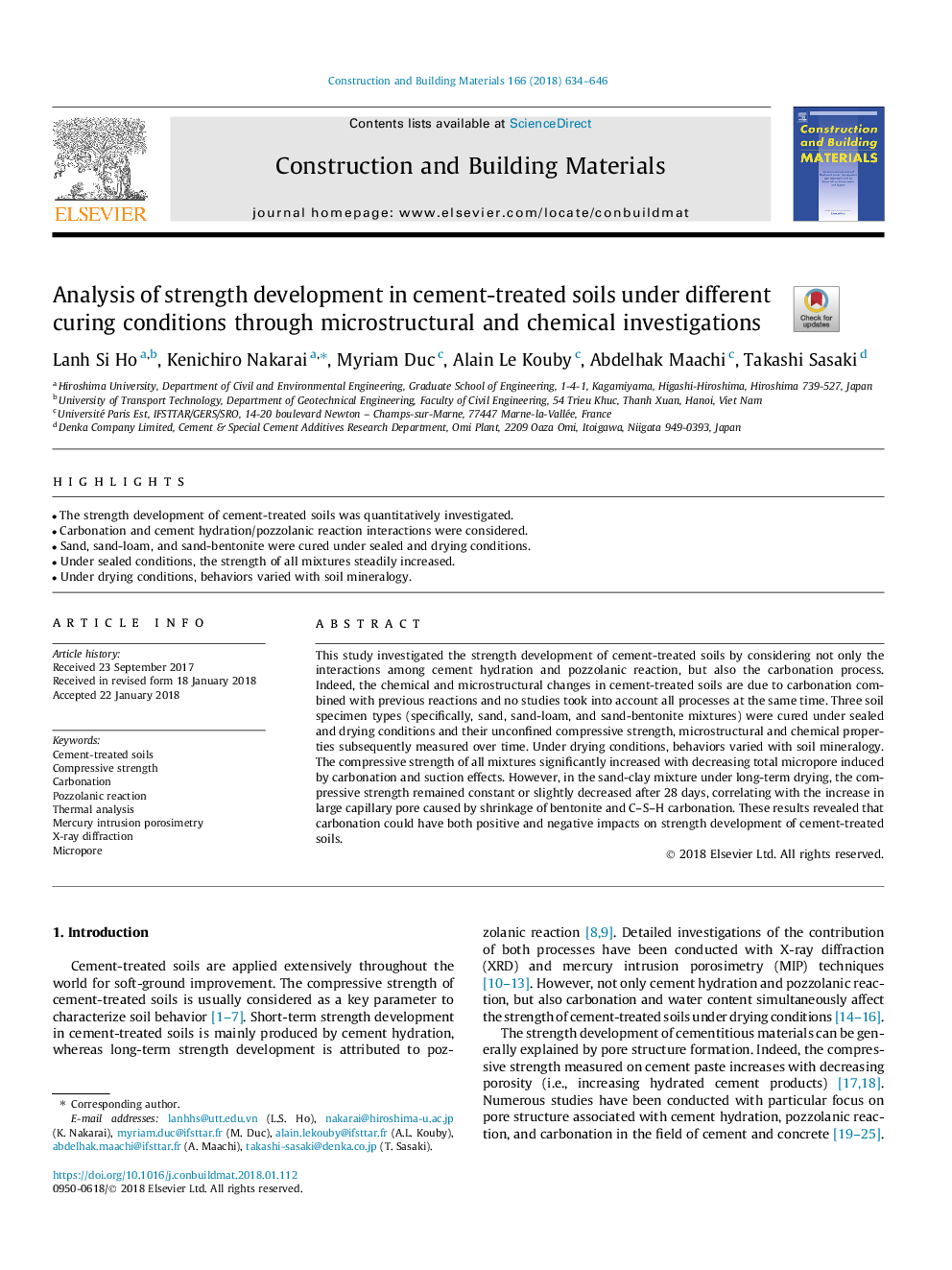| Article ID | Journal | Published Year | Pages | File Type |
|---|---|---|---|---|
| 6715370 | Construction and Building Materials | 2018 | 13 Pages |
Abstract
This study investigated the strength development of cement-treated soils by considering not only the interactions among cement hydration and pozzolanic reaction, but also the carbonation process. Indeed, the chemical and microstructural changes in cement-treated soils are due to carbonation combined with previous reactions and no studies took into account all processes at the same time. Three soil specimen types (specifically, sand, sand-loam, and sand-bentonite mixtures) were cured under sealed and drying conditions and their unconfined compressive strength, microstructural and chemical properties subsequently measured over time. Under drying conditions, behaviors varied with soil mineralogy. The compressive strength of all mixtures significantly increased with decreasing total micropore induced by carbonation and suction effects. However, in the sand-clay mixture under long-term drying, the compressive strength remained constant or slightly decreased after 28â¯days, correlating with the increase in large capillary pore caused by shrinkage of bentonite and C-S-H carbonation. These results revealed that carbonation could have both positive and negative impacts on strength development of cement-treated soils.
Keywords
Related Topics
Physical Sciences and Engineering
Engineering
Civil and Structural Engineering
Authors
Lanh Si Ho, Kenichiro Nakarai, Myriam Duc, Alain Le Kouby, Abdelhak Maachi, Takashi Sasaki,
